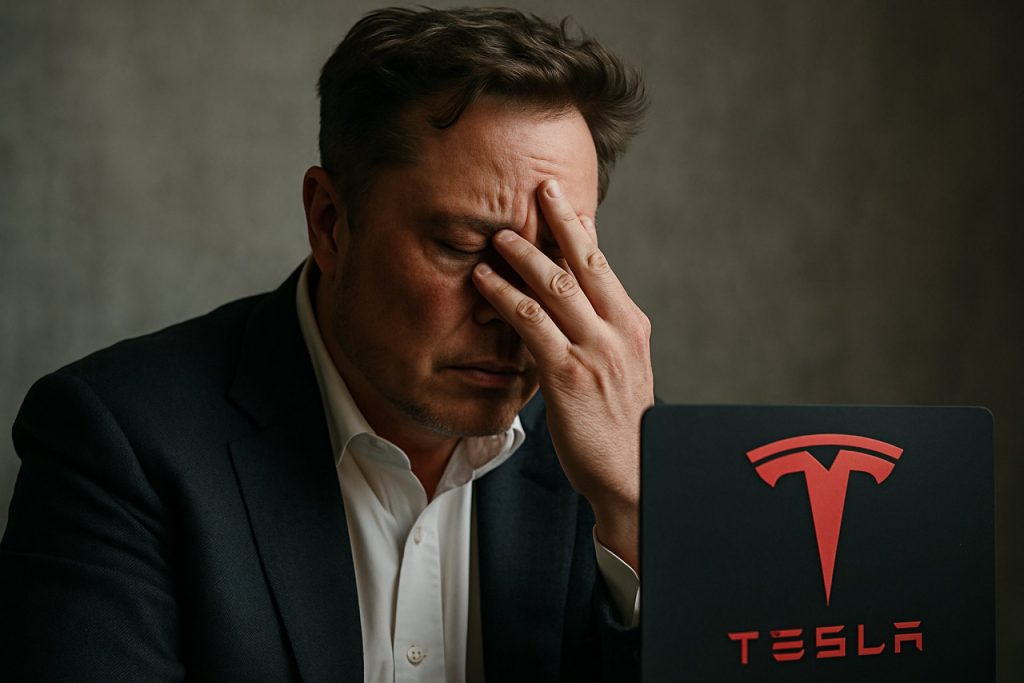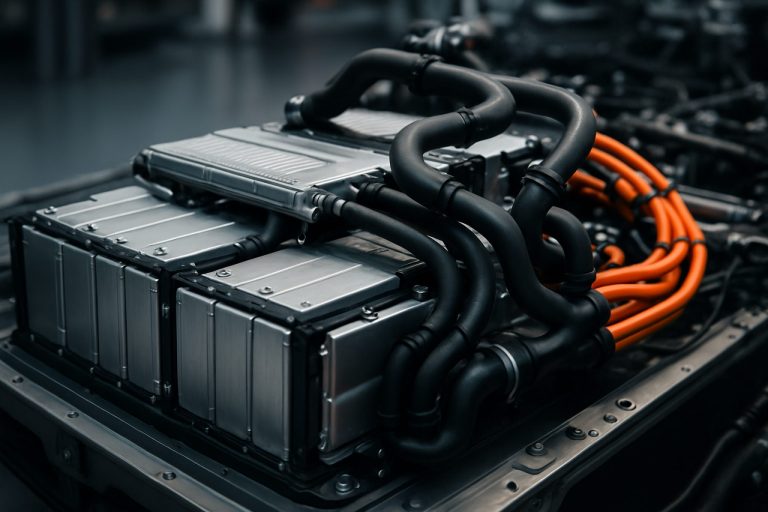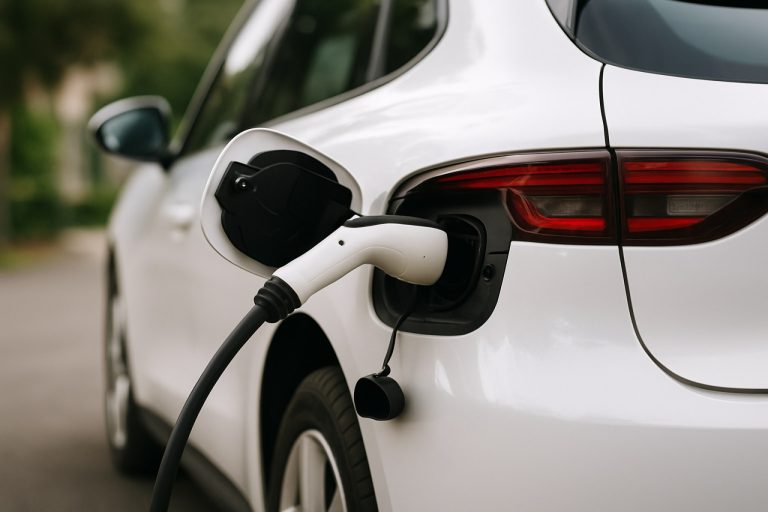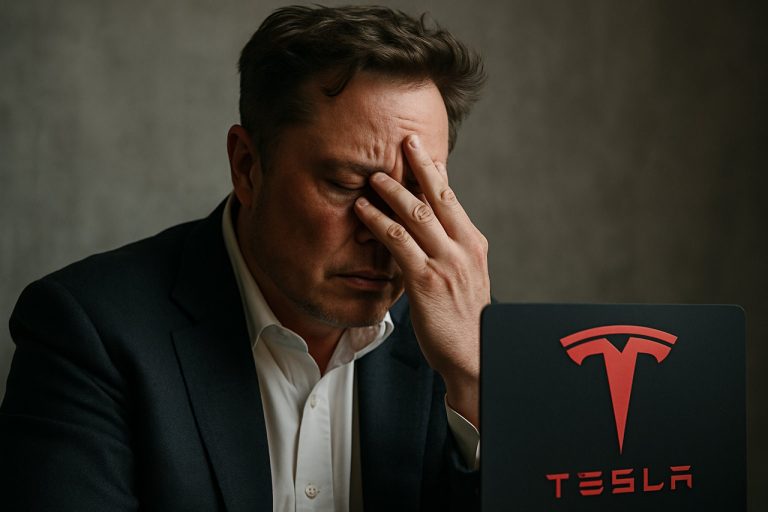
- Elon Musk’s political involvement, especially with the “Department of Government Efficiency,” has damaged Tesla’s brand reputation and alienated core customers.
- Tesla’s brand ranking plummeted from eighth to 95th in just three years, reflecting public backlash over Musk’s actions and political alignment.
- European Tesla sales sharply declined, with drops as steep as 81% in Sweden and 74% in the Netherlands, signaling global distrust.
- Chinese automaker BYD surpassed Tesla as the top EV seller in Europe, highlighting increased competition and shifting market leadership.
- Musk’s moves, including job cuts and a $200 million Trump campaign donation, have generated costs and controversy, leading to a 71% drop in Tesla’s profits.
- The case underscores that brand sustainability relies on trust, reputation, and alignment with customer values—not just innovation.
Tesla’s Dazzling Rise and Its Sudden Setback
Tesla captivated the world by making electric cars desirable, even aspirational. By 2021, it sat among the world’s most reputable brands, lauded for innovation and bold vision. That reputation, however, has stumbled, dropping precipitously from eighth to 95th in brand rankings in just three years.
The change comes not from stagnation in battery tech or a backslide in design, but from Musk’s aggressive plunge into the U.S. federal bureaucracy under President Trump’s administration. As the force behind the so-called Department of Government Efficiency (“Doge”), Musk slashed jobs and gutted spending with merciless efficiency. These moves, intended to burnish his legacy as a turnaround artist, instead scorched the goodwill Tesla had painstakingly built.
Tesla’s Troubles Spread Across the Globe
The impact punctured more than just U.S. morale. Across Europe—the epicenter of EV enthusiasm—statisticians have watched Tesla sales nosedive: down 59% in France, a harrowing 81% in Sweden, 74% in the Netherlands, 66% in Denmark, 50% in Switzerland, and 33% in Portugal. Distaste for Musk’s high-profile political interventions sent ripples that reached showroom floors.
Adding insult to injury, Tesla was dethroned by Chinese automaker BYD, which seized the top spot for EV sales in Europe for the very first time. For a brand once synonymous with cutting-edge technology, losing to a fast-charging competitor signals a tectonic shift.
The Political Peril of Brand Alignment
Musk’s urge to engineer government transformation yielded unpopular outcomes, especially after his $200 million donation to Trump’s campaign and subsequent appointment to lead Doge. The initiative, lauded by some for its promises of efficiency, drew ire from many after reports showed job and spending cuts poised to cost more than they saved—$135 billion in new costs shadowing $160 billion in projected cuts.
Voters across the spectrum soured on Musk’s political stint, with polling revealing widespread disapproval, particularly from the government workforce and their supporters. At the same time, the brand’s core customer base—urban, left-leaning early adopters—found themselves at odds with Musk’s new alliances and public postures.
Brand Equity on the Brink
Not even strong earnings could mask the fallout. By late April, Tesla’s profits plummeted a stunning 71%. Musk, in a move signaling either fatigue or retreat, announced that his role at Doge would sharply wind down. He declared that the federal “financial house” was in order, but for Tesla, the reckoning has only just begun.
The High Price of Overreach
The tale of Tesla’s slide offers a stark lesson: In the volatile intersection of technology, politics, and culture, brands are fragile—subject to the whims not just of markets, but of the personalities who steer them. As the lines between business leadership and political activism blur, even the most iconic companies risk losing their luster if they stray too far from the very values that fueled their rise.
As Tesla’s experience now shows, innovation sells cars—but trust, reputation, and careful stewardship are what sustain a brand. For leaders, the call is clear: wield power wisely. The marketplace, just like democracy, ultimately answers to the people.
Tesla in Turmoil: How Elon Musk’s Political Gambles Triggered a Global EV Shake-Up (and What It Means for You)
The dramatic reversal of Tesla’s fortunes isn’t just a headline—it’s a cautionary tale for both CEOs and everyday consumers. Elon Musk, once lionized as an unstoppable innovator, now faces a harsh reckoning fueled by political controversy and eroding trust in the Tesla brand. Here’s a deep-dive into the facts the original story missed, along with actionable recommendations for drivers, investors, and enthusiasts in the fast-evolving electric vehicle (EV) market.
Key Questions Answered
- How did Elon Musk’s political activities create global disruption for Tesla?
- What unique vulnerabilities do brands face when leadership becomes politically divisive?
- How are competitors like BYD capitalizing on Tesla’s stumbles?
- What practical lessons can consumers, policymakers, and business leaders draw from this crisis?
Additional Facts & Insights Not Fully Explored
1. Tesla’s International Challenges: Beyond the Headlines
- Heightened Regulatory Barriers: Tesla has faced mounting regulatory scrutiny in Europe, including stricter emissions standards and new requirements for battery recycling and supply chain transparency. (Source: European Union)
- China Tensions: Tesla’s Shanghai gigafactory has contended with both geopolitical tensions and increasing competition from domestic automakers, including BYD, NIO, and XPeng.
- Supply Chain Strains: The global chip shortage and lithium price volatility have amplified Tesla’s production costs and delivery delays, further straining customer satisfaction.
2. Market Forecasts & Industry Trends
- Rise of the Chinese EV Juggernaut: BYD not only outsold Tesla in Europe, but they also dominate global EV sales with a vertically integrated supply chain model, homegrown battery tech, and aggressive pricing strategies. (Source: BYD)
- Legacy Automakers Surge: Volkswagen, Hyundai, and Ford are successfully pivoting to electrification, leveraging established dealer networks and government partnerships to win over customers disillusioned by Tesla’s turmoil.
- EV Market Resilience: Despite Tesla’s slide, the global EV market is projected to grow by 25% annually through 2030, but market share is expected to become more fragmented. (Source: International Energy Agency [IEA])
3. Features, Specs & Pricing: Tesla vs. the Competition
| Model | Starting Price (USD) | Range (miles) | 0-60 mph (secs) | Self-Driving Features |
|---|---|---|---|---|
| Tesla Model 3 (2024) | $40,240 | 272–358 | 5.8 | Full Self-Driving (beta; controversy over safety claims) |
| BYD Seal | $34,000 (est.) | 342 | 5.9 | Driver assist; OTA updates; no FSD in US/EU yet |
| Volkswagen ID.4 | $39,735 | 275 | 7.6 | Advanced lane keep, park assist |
4. Controversies, Security & Sustainability
- Autopilot Safety Probes: Tesla’s Full Self Driving (FSD) features remain under NHTSA and European investigation after several high-profile crashes and concerns about misleading marketing claims. (Source: NHTSA)
- Labor Issues: Tesla’s job cuts and aggressive automation have sparked union protests in Europe, especially in Sweden and Germany, impacting production output and workforce morale.
- BYD’s Eco Credentials: BYD uses LFP (Lithium Iron Phosphate) batteries, which are more sustainable and less prone to thermal runaway compared to Tesla’s NCA batteries.
5. Brand Management: E-E-A-T (Experience, Expertise, Authoritativeness, Trustworthiness)
- Trust Gap: Tesla’s perceived alignment with divisive politics contradicts the values of a significant part of its urban, progressive customer base—eroding trust and loyalty.
- Leadership Fatigue: Musk’s increasingly unpredictable public persona—fueled by late-night tweets and headline-grabbing feuds—has caused reputational whiplash within the tech and auto industries alike.
- Expert Opinions: Brand strategists like Scott Galloway emphasize that tech CEOs risk long-term damage when personal politics overshadow core product value. (Source: NYU Stern)
How-To: Minimize Risk When Buying Your Next EV
- Diversify Your Research: Compare specs, after-sales support, and real-world user reviews—not just flashy features.
- Check Recalls and Safety Ratings: Use resources like NHTSA or Euro NCAP for up-to-date crash test data.
- Assess Charging Networks: BYD and Volkswagen have access to expanding European networks, while Tesla’s Supercharger exclusivity may wane as competitors strike deals for shared use.
- Watch for Incentives: Look for evolving government EV grants and tax credits—which may change as policy priorities shift with political winds.
Life Hack: Protect Yourself from Brand Volatility
- Resale Safeguard: Leasing instead of buying may minimize potential losses as reputational issues hit resale value.
- Cross-Shop International Brands: Don’t overlook up-and-coming contenders from China or South Korea, as they may offer better value and innovation than legacy marques or Tesla.
- Stay Updated: Subscribe to independent EV forums and watchdog groups for the latest unbiased news on recalls, incentives, and ownership experiences.
Pros & Cons Overview
| Pros | Cons |
|---|---|
| Leading-edge range and performance (Tesla, BYD) | Brand risk due to unpredictable CEO behavior (Tesla) |
| Expanding charging networks | Supply chain volatility, delivery delays |
| Strong resale history (historically Tesla) | Job cuts, union protests, regulatory scrutiny |
| Eco-friendly options from new rivals | Potential software and self-driving reliability concerns |
Predictions & Actionable Recommendations
- Expect further shifts in market share: As competitors innovate on both product and pricing, Tesla’s lead is likely to continue shrinking unless the company reinvigorates its customer focus and leadership stability.
- Consider total cost of ownership, including maintenance, insurance, and charging access in your decision—not just sticker price and hype.
- For investors: Diversify holdings across several automakers and stay alert for geopolitical shifts impacting global supply chains.
- For prospective buyers: Leverage evolving incentive programs and dealer offers; don’t rush big-ticket decisions until market turbulence settles.
Conclusion: How to Future-Proof Your EV Choices
Tesla’s current woes offer a vital lesson: the allure of technological innovation must be matched by unwavering stewardship and a brand vision that resonates with core customers. Whether behind the wheel or at the boardroom table, wise decision-making now depends on informed, values-driven choices. Fortune is favoring brands—and buyers—who keep both ethics and innovation in clear focus.
“Stay informed, ask tough questions, and always demand that the companies you support align with your values—and your wallet.”
—
For up-to-the-minute updates on the EV revolution, check official brand sites such as Tesla, BYD, and government resources like NHTSA.



